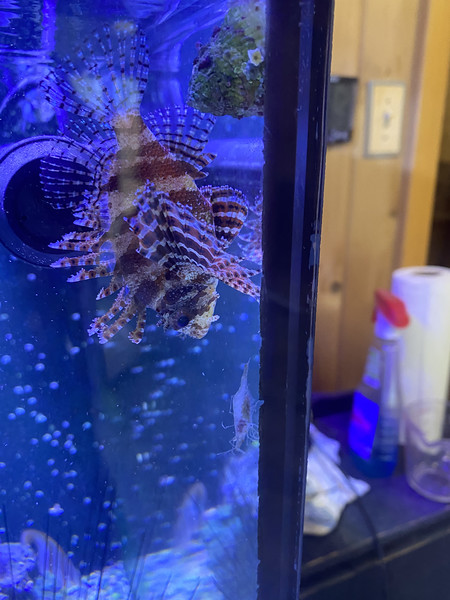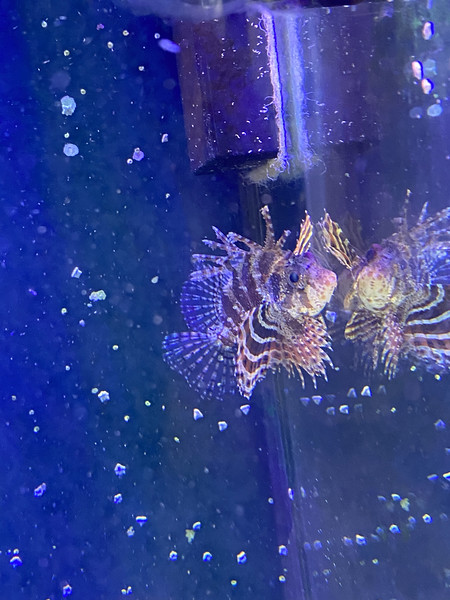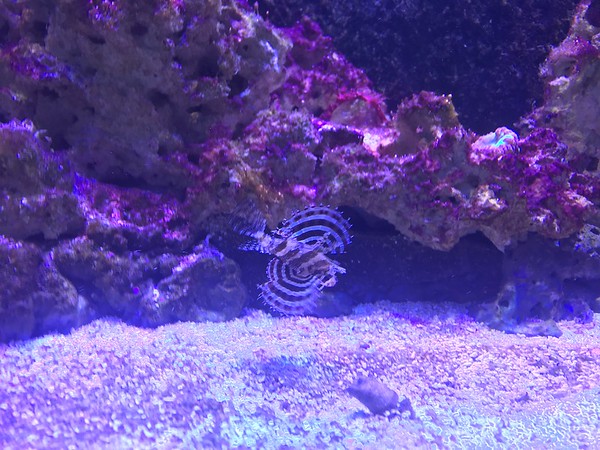- Joined
- Jul 3, 2016
- Messages
- 6,797
- Reaction score
- 8,653
I know you don't want to hear it, but if you want long term success with a dwarf or medium bodied lion, you must include live food in their diet. I am so sick of the "train your lion" responses to the issue of feeding difficulties with these lions. if you notice the source of this advice you will never find anyone keeping a full grown lion for multiple years. If you are ok to replace your lion every year like your iphone, pay me no mind. In the most successful end to the "train your lion" school of thought, they will live at most 1-1.5 years; most perish much, much sooner. They live between 10-15 years in the wild, that should be your goal.
Most of these lions lions are a challenge to feed from the get go, so there is never a guarantee you'll get them eat dead food at all, much less enough to sustain their life long term. If you do your research, like any responsible hobbyist; you'll find a multiple of threads all over the net about "dwarf lion won't eat", "dwarf lion stopped eating"; they all end the same way, death. So you must decide before you get one that you are willing and able to feed live food, or you must just say "no".
A couple of lfs have stopped bring them in at all, one owner saying "they always die". Another large lfs bring them through with no problem, mostly 100% mortality with weeks. Having hobbyist blame themselves and try repeatedly before giving up. They get them for $7 wholesale, sell them for $40, and just don't care how fast they die. There are other reasons for their high mortality, but once the hobbyist brings them home, feeding and internal parasites are the highest concern.
The initial challenges not withstanding, and to repeat, there are no guarantees. Something happens around a year or so, if you do get them eating dead food; usually much sooner. If you think they are going to eat from the water column, they will just slowly starve over time. Because it sometimes takes months, people don't realize it's a nutritional deficit that caused their demise. Because they are picky eaters, the ones that eat dead food seem to take to krill. This quickly becomes the only thing they eat. After a while because of a high level of thiaminese, they develop a vitamin B1 deficiency. This leads to lockjaw and death, within months and rarely more than than a year or so. Even if eating dead food, it is usually always challenging, maybe going well for a while, then a series of hunger strikes. It always ends the same way, they will eventually stop eating, never even making it pass 1.5 years. All the reasons this happens are unknown, but one of my theories is that without the thrill of the hunt, they just eventually give up. They are not meant to be kept in a glass cage and fed with a stick.
If you read this post and decide to get a dwarf or medium bodied lion. And he refuses to eat or stops eating. And you refuse to feed him live foods. At least admit it to yourself, "you starved your lion to death because you refused to provide the food he needed to survive".
Disclaimer: this is my opinion through decades of experience primarily focused on predatory fish. My personal, hands on, real life experience with dozens if not hundreds of examples. Not repeating anything I've heard or read, just real observations. Nothing is 100% and it would be great if hobbyist could achieve long term success feeding a dead only diet, because I know most hobbyist don't want to feed live food and the need for care is out there. I still challenge fellow hobbyist to share their dead diet long term success.
Most of these lions lions are a challenge to feed from the get go, so there is never a guarantee you'll get them eat dead food at all, much less enough to sustain their life long term. If you do your research, like any responsible hobbyist; you'll find a multiple of threads all over the net about "dwarf lion won't eat", "dwarf lion stopped eating"; they all end the same way, death. So you must decide before you get one that you are willing and able to feed live food, or you must just say "no".
A couple of lfs have stopped bring them in at all, one owner saying "they always die". Another large lfs bring them through with no problem, mostly 100% mortality with weeks. Having hobbyist blame themselves and try repeatedly before giving up. They get them for $7 wholesale, sell them for $40, and just don't care how fast they die. There are other reasons for their high mortality, but once the hobbyist brings them home, feeding and internal parasites are the highest concern.
The initial challenges not withstanding, and to repeat, there are no guarantees. Something happens around a year or so, if you do get them eating dead food; usually much sooner. If you think they are going to eat from the water column, they will just slowly starve over time. Because it sometimes takes months, people don't realize it's a nutritional deficit that caused their demise. Because they are picky eaters, the ones that eat dead food seem to take to krill. This quickly becomes the only thing they eat. After a while because of a high level of thiaminese, they develop a vitamin B1 deficiency. This leads to lockjaw and death, within months and rarely more than than a year or so. Even if eating dead food, it is usually always challenging, maybe going well for a while, then a series of hunger strikes. It always ends the same way, they will eventually stop eating, never even making it pass 1.5 years. All the reasons this happens are unknown, but one of my theories is that without the thrill of the hunt, they just eventually give up. They are not meant to be kept in a glass cage and fed with a stick.
If you read this post and decide to get a dwarf or medium bodied lion. And he refuses to eat or stops eating. And you refuse to feed him live foods. At least admit it to yourself, "you starved your lion to death because you refused to provide the food he needed to survive".
Disclaimer: this is my opinion through decades of experience primarily focused on predatory fish. My personal, hands on, real life experience with dozens if not hundreds of examples. Not repeating anything I've heard or read, just real observations. Nothing is 100% and it would be great if hobbyist could achieve long term success feeding a dead only diet, because I know most hobbyist don't want to feed live food and the need for care is out there. I still challenge fellow hobbyist to share their dead diet long term success.



















